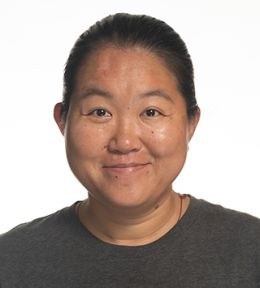Great Problems, Great Minds Seminar Series: Computational Methods and GIS Applications in Social Sciences
Join the Social Sciences Colloquium at the Department of Social Sciences for this Great Problems, Great Minds seminar series event featuring guest speaker Fahui Wang, Cyril and Tutta Vetter Alumni Professor in the Department of Geography and Anthropology, and associate dean of the Pinkie Gordon Lane Graduate School at Louisiana State University (LSU). This seminar will take place on Wednesday, March 27, from 5–6:15 p.m. in room 104 of the Rettaliata Engineering Center, as well as online.
Abstract
This presentation uses five themes to demonstrate how geographic information systems (GIS) helps tell better stories across humanities and social sciences, and by extension, their applications in public policy. They all fit under a broad umbrella, “Spatial Computational Social Sciences.” Specifically, case studies come from (i.) history and linguistics, (ii.) urban economics, (iii.) sociology or criminology in particular, (iv.) public health, and (v.) spatial planning. In each story, the talk emphasizes what the issue is, where the science is, and what the impacts are.
Bio
Fahui Wang’s research revolves around human geography (urban, economic, and transportation), city and regional planning, crime analysis, and public health, with a methodological focus on spatial analytics in GIS. Wang has published more than 160 journal papers and book chapters on these topics. He was a recipient of the LSU Rainmaker Award for outstanding research, scholarship, and creative activity (2015); LSU Distinguished Faculty Award (2018); LSU Distinguished Research Master Award (2022); and the CPGIS Distinguished Scholar Award (2023). He is among the top 1 percent most-cited researchers in geography in the world. His work has been supported by the National Institutes of Health, National Science Foundation, United States Department of Housing and Urban Development, U.S. Department of Justice, U.S. Department of Energy, U.S. Department of Health and Human Services, Louisiana Department of Health, and National Natural Science Foundation of China. He had his B.S. in Geography from Peking University, China, and both his M.A. in Economics and Ph.D. in City and Regional Planning from The Ohio State University. He has published five authored or co-authored books and two edited or co-edited books. His latest co-authored book entitled Computational Methods and GIS Applications in Social Science, was published by CRC Press in 2024. This book integrates GIS, spatial analysis, and computational methods for solving real-world problems in various policy-relevant social science applications. Thoroughly updated, the third edition of the textbook, and its accompanying lab manual, showcase the best practices of spatial computational social science and include numerous new examples and case studies with step-by-step instructions in ArcGIS Pro, and open-source platform KNIME. KNIME supports visual programming and multiple scripting languages such as R, Python, and Java. It helps readers sharpen their GIS skills by applying GIS techniques in detecting spatiotemporal crime hot spots, measuring the accessibility of primary care physicians, forecasting the impact of hospital closures on the local community, or siting the best locations for business. This textbook is intended for upper-level undergraduate and graduate students taking courses in quantitative geography, spatial analysis, GIS applications in socioeconomic studies, GIS applications in business, and location theory. Researchers in similar fields: geography, city and regional planning, sociology, criminology, public health, and public administration.
“Computational Methods and GIS Applications in Social Sciences” event is part of the Social Sciences Colloquium of the Great Problems, Great Minds seminar series which explores the major problems facing humanity as we move into the heart of the twenty-first century. To see the full schedule and videos from previous events, visit the seminar series page. For more information, contact Associate Professor of Social Sciences Hao Huang at hhuang48@illinoistech.edu.
Visitor and event parking information.
Watch OnlineEvent Contact


